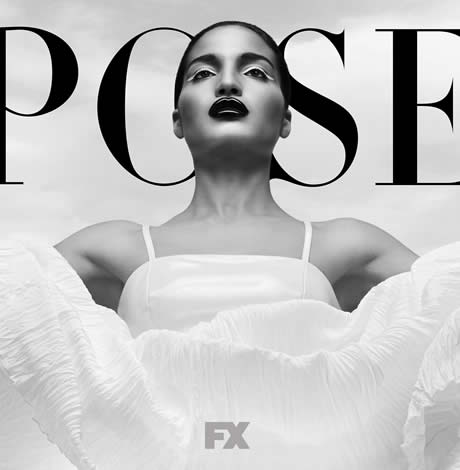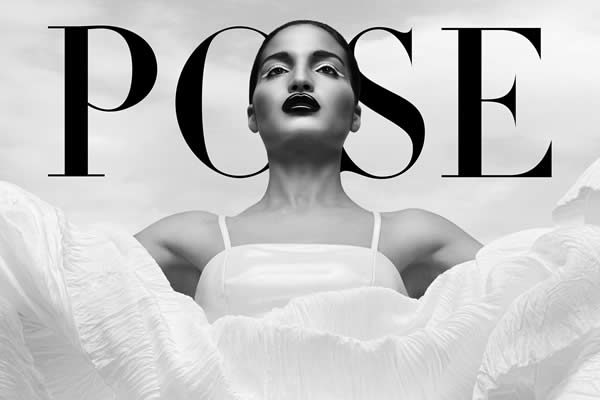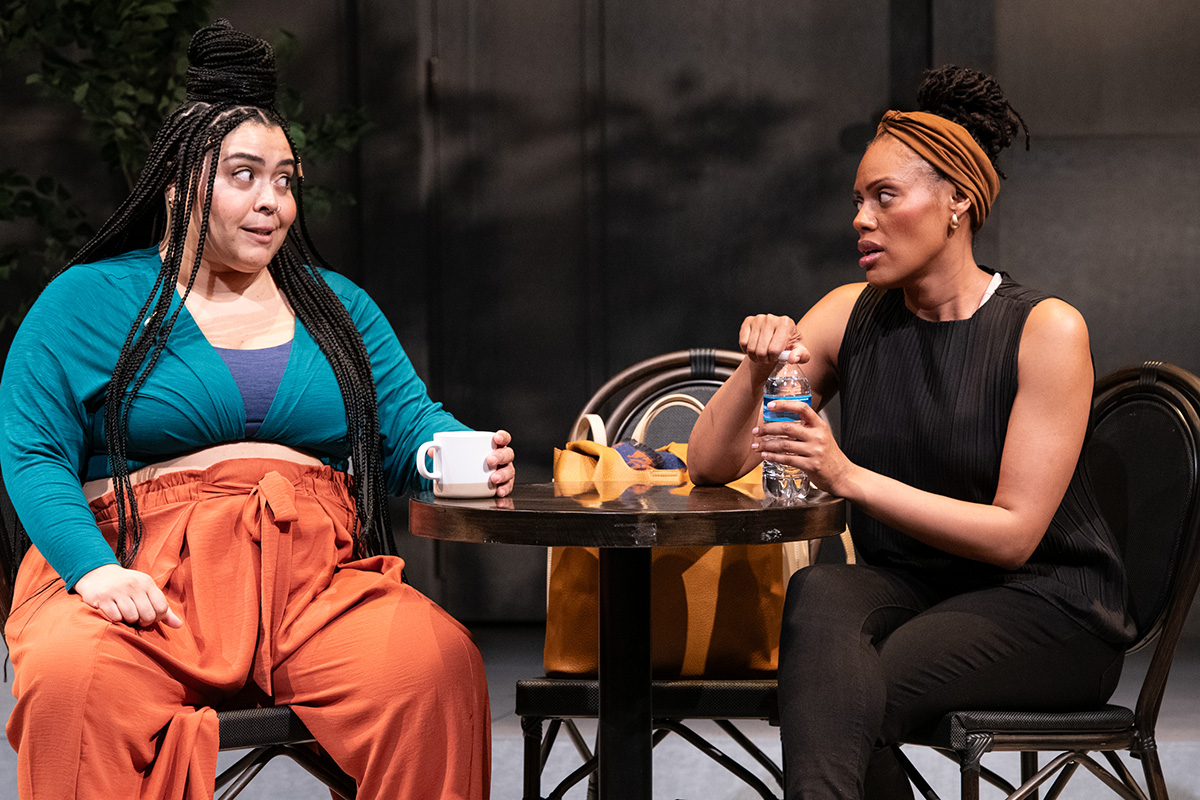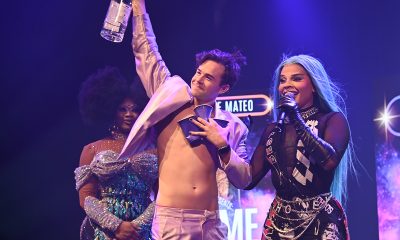Arts & Entertainment
‘Pose’ scores six history-making Emmy nominations
‘RuPaul’s Drag Race,’ Schitt’s Creek’ also land noms


“Pose” landed six Emmy nominations, including Outstanding Drama Series and a Best Actor nomination for Billy Porter, marking a historic milestone for the first television series to feature the largest cast of LGBTQ actors.
Porter, who portrays Pray Tell on “Pose,” is the first openly gay black man to be nominated for an Emmy.
“I just haven’t been breathing for the past day,” Porter told Deadline about his nomination. “So today, I was able to breathe — that was my first reaction!”
Other LGBTQ nominations include “RuPaul’s Drag Race” for Outstanding Competition Program and “RuPaul’s Drag Race: Untucked” for Outstanding Unstructured Reality Program. RuPaul also was nominated for Outstanding Host for a Reality or Competition Program up against Ellen DeGeneres for “Ellen’s Game of Games.”
Laverne Cox is nominated for Outstanding Guest Actress in a Drama Series for “Orange is the New Black” and Jane Lynch is nominated for Outstanding Guest Actress in a Comedy Series for “The Marvelous Mrs. Maisel.”
Kate McKinnon was nominated for Outstanding Supporting Actress in a Comedy Series for “Saturday Night Live” and Ben Whishaw is nominated for Outstanding Supporting Actor in a Limited Series or Movie for “A Very English Scandal.”
“Schitt’s Creek,” which stars out actor Dan Levy, was nominated for Outstanding Comedy Series. “Queer Eye” was also nominated for Outstanding Structured Reality Program.
Outstanding Short Form Variety Series is full of gay nominees including “Billy on the Street,” “Gay of Thrones” and “The Randy Rainbow Show.”
“Game of Thrones” also made history with a total of 32 nominations, the most nominations received by a television series in one year.
The Emmys air on Sunday, Sept. 22 at 8 p.m. on FOX.
Check out more of the nominees below and the complete list here.
Outstanding Drama Series
“Better Call Saul”
“Bodyguard”
“Game of Thrones”
“Killing Eve”
“Ozark”
“Pose”
“Succession”
“This Is Us”
Outstanding Comedy Series
“Barry”
“Fleabag”
“Russian Doll”
“Schitt’s Creek”
“The Good Place”
“The Marvelous Mrs. Maisel”
“Veep”
Outstanding Limited Series
“Chernobyl”
“Escape at Dannemora”
“Fosse/Verdon”
“Sharp Objects”
“When They See Us”
Outstanding Drama Actor
Bob Odenkirk (“Better Call Saul”)
Kit Harington (“Game of Thrones”)
Jason Bateman (“Ozark”)
Sterling K. Brown (“This Is Us”)
Milo Ventimiglia (“This Is Us”)
Billy Porter (“Pose”)
Outstanding Drama Actress
Emilia Clarke (“Game of Thrones”)
Robin Wright (“House of Cards”)
Viola Davis (“How To Get Away With Murder”)
Sandra Oh (“Killing Eve”)
Jodie Comer (“Killing Eve”)
Mandy Moore (“This Is Us”)
Laura Linney (“Ozark”)
Outstanding Supporting Actor in a Drama Series
Jonathan Banks (“Better Call Saul”)
Giancarlo Esposito (“Better Call Saul”)
Alfie Allen (“Game of Thrones”)
Nikolaj Coster-Waldau (“Game of Thrones”)
Peter Dinklage (“Game of Thrones”)
Michael Kelly (“House of Cards”)
Chris Sullivan (“This Is Us”)
Outstanding Supporting Actress in a Drama Series
Lena Headey (“Game of Thrones”)
Gwendoline Christine (“Game of Thrones”)
Sophie Turner (“Game of Thrones”)
Maisie Williams (“Game of Thrones”)
Fiona Shaw (“Killing Eve”)
Julia Garner (“Ozark”)
Outstanding Guest Actor in a Drama Series
Michael McKean (“Better Call Saul”)
Glynn Turman (“How To Get Away With Murder)”
Kumail Nanjiani (“The Twilight Zone”)
Bradley Whitford (“The Handmaid’s Tale”)
Michael Angarano (“This Is Us”)
Ron Cephas Jones (“This Is Us”)
Outstanding Guest Actress in a Drama Series
Jessica Lange (“American Horror Story: Apocalypse”)
Carice van Houten (“Game of Thrones”)
Laverne Cox (“Orange Is The New Black”)
Cicely Tyson (“How To Get Away With Murder”)
Cherry Jones (“The Handmaid’s Tale”)
Phylicia Rashad (“This Is Us”)
Outstanding Directing for a Drama Series
Game of Thrones “The Last Of The Starks”
Game of Thrones “The Long Night”
Game of Thrones “The Iron Throne”
Killing Eve “Desperate Times”
Ozark “Reparations”
Succession “Celebration”
The Handmaid’s Tale “Holly”
Outstanding Writing for a Drama Series
Better Call Saul “Winner”
Bodyguard “Episode 1”
Game of Thrones “The Iron Throne”
Killing Eve “Nice And Neat”
Succession “Nobody Is Ever Missing”
The Handmaid’s Tale “Holly”
Outstanding Comedy Actor
Bill Hader (“Barry”)
Don Cheadle (“Black Monday”)
Anthony Anderson (“Black-ish”)
Eugene Levy (“Schitt’s Creek”)
Ted Danson (“The Good Place”)
Michael Douglas (“The Kominsky Method”)
Outstanding Comedy Actress
Christina Applegate (“Dead to Me”)
Phoebe Waller-Bridge (“Fleabag”)
Catherine O’Hara (“Schitt’s Creek”)
Natasha Lyonne (“Russian Doll”)
Rachel Brosnahan (“The Marvelous Mrs. Maisel”)
Julia Louis-Dreyfus (“Veep)
Outstanding Supporting Actor in a Comedy Series
Henry Winkler (“Barry”)
Anthony Carrigan (“Barry”)
Stephen Root (“Barry”)
Tony Hale (“Veep”)
Tony Shalhoub (“The Marvelous Mrs. Maisel”)
Alan Arkin (“The Kominsky Method”)
Outstanding Supporting Actress in a Comedy Series
Sarah Goldberg (“Barry”)
Sian Clifford (“Fleabag”)
Olivia Colman (“Fleabag”)
Betty Gilpin (“GLOW”)
Marin Hinkle (“The Marvelous Mrs. Maisel”)
Kate McKinnon (“Saturday Night Live”)
Alex Borstein (“The Marvelous Mrs. Maisel”)
Anna Chlumsky (“Veep”)
Outstanding Guest Actor in a Comedy Series
Robert De Niro (“Saturday Night Live”)
John Mulaney (“Saturday Night Live”)
Adam Sandler (“Saturday Night Live”)
Matt Damon (“Saturday Night Live”)
Luke Kirby (“The Marvelous Mrs. Maisel”)
Rufus Sewell (“The Marvelous Mrs. Maisel”)
Peter MacNicol (“Veep”)
Outstanding Guest Actress in a Comedy Series
Fiona Shaw (“Fleabag”)
Kristin Scott Thomas (“Fleabag”)
Emma Thompson (“Saturday Night Live”)
Sandra Oh (“Saturday Night Live”)
Maya Rudolph (“The Good Place”)
Jane Lynch (“The Marvelous Mrs. Maisel”)
Outstanding Directing for a Comedy Series
“Barry” (“The Audition”)
“Barry” (“ronny/lily”)
“Fleabag” (“Episode 1”)
“The Big Bang Theory” (“Stockholm Syndrome”)
“The Marvelous Mrs. Maisel” (“All Alone”)
“The Marvelous Mrs. Maisel” (“We’re Going To The Catskills!”)
Outstanding Writing for a Comedy Series
“Barry” (“ronny/lily”)
“Fleabag” (“Episode 1”)
“PEN15” (“Anna Ishii-Peters”)
“Russian Doll” (“Nothing In This World Is Easy”)
“Russian Doll” (“A Warm Body”)
“The Good Place” (“Janet(s)”)
“Veep” (“Veep”)
Outstanding Lead Actor in a Limited Series
Mahershala Ali (“True Detective”)
Hugh Grant (“A Very English Scandal”)
Benicio del Toro (“Escape At Dannemora”)
Sam Rockwell (“Fosse/Verdon”)
Jared Harris (“Chernobyl”)
Jharrel Jerome (“When They See Us”)
Outstanding Lead Actress in a Limited Series
Amy Adams (“Sharp Objects”)
Patricia Arquette (“Escape At Dannemora”)
Michelle Williams (“Fosse/Verdon”)
Joey King (“The Act”)
Aunjanue Ellis (“When They See Us”)
Niecy Nash (“When They See Us”)
Outstanding Supporting Actor in a Limited Series
Ben Whishaw (“A Very English Scandal”)
Stellan Skarsgard (“Chernobyl”)
Paul Dano (“Escape at Dannemora”)
John Leguizamo (“When They See Us”)
Michael K. Williams (“When They See Us”)
Asante Black (“When They See Us”)
Outstanding Supporting Actress in a Limited Series
Emily Watson (“Chernobyl”)
Patricia Clarkson (“Sharp Objects”)
Marsha Stephanie Blake (“When They See Us”)
Vera Farmiga (“When They See Us”)
Patricia Arquette (“The Act”)
Margaret Qualley (“Fosse/Verdon”)
Outstanding Television Movie
“Bandersnatch (Black Mirror)”
“Brexit”
” King Lear”
“My Dinner with Hervé”
Outstanding Short Form Variety Series
“Billy On The Street”
“Carpool Karaoke: The Series”
“Gay Of Thrones”
“Honest Trailers”
“The Randy Rainbow Show”
Outstanding Competition Program
“American Ninja Warrior”
“RuPaul’s Drag Race”
“Nailed It!”
“The Amazing Race”
“The Voice”
“Top Chef”
Outstanding Host for a Reality or Competition Program
Ellen DeGeneres (“Ellen’s Game of Games”)
RuPaul (“RuPaul’s Drag Race”)
Amy Poehler and Nick Offerman (“Making It”)
James Corden (“The World’s Best”)
Marie Kondo (“Tidying Up With Marie Kondo”)
Outstanding Structured Reality Program
“Antiques Roadshow”
“Diners, Drive-Ins, and Dives”
“Queer Eye”
“Shark Tank”
“Tidying Up With Marie Kondo”
“Who Do You Think You Are?”
Outstanding Unstructured Reality Program
“Born This Way”
“Deadliest Catch”
” Life Below Zero”
“RuPaul’s Drag Race: Untucked”
“Somebody Feed Phil”
“United Shades of America with W. Kamau Bell”
Theater
Round House explores serious issues related to privilege
‘A Jumping-Off Point’ is absorbing, timely, and funny

‘A Jumping-Off Point’
Through May 5
Round House Theatre
4545 East-West Highway, Bethesda, Md.
$46-$83
Roundhousetheatre.org
In Inda Craig-Galván’s new play “A Jumping-Off Point,” protagonist Leslie Wallace, a rising Black dramatist, believes strongly in writing about what you know. Clearly, Craig-Galván, a real-life successful Black playwright and television writer, adheres to the same maxim. Whether further details from the play are drawn from her life, is up for speculation.
Absorbing, timely, and often funny, the current Round House Theatre offering explores some serious issues surrounding privilege and who gets to write about what. Nimbly staged and acted by a pitch perfect cast, the play moves swiftly across what feels like familiar territory without being the least bit predictable.
After a tense wait, Leslie (Nikkole Salter) learns she’s been hired to be showrunner and head writer for a new HBO MAX prestige series. What ought to be a heady time for the ambitious young woman quickly goes sour when a white man bearing accusations shows up at her door.
The uninvited visitor is Andrew (Danny Gavigan), a fellow student from Leslie’s graduate playwriting program. The pair were never friends. In fact, he pressed all of her buttons without even trying. She views him as a lazy, advantaged guy destined to fail up, and finds his choosing to dramatize the African American Mississippi Delta experience especially annoying.
Since grad school, Leslie has had a play successfully produced in New York and now she’s on the cusp of making it big in Los Angeles while Andrew is bagging groceries at Ralph’s. (In fact, we’ll discover that he’s a held a series of wide-ranging temporary jobs, picking up a lot of information from each, a habit that will serve him later on, but I digress.)
Their conversation is awkward as Andrew’s demeanor shifts back and forth from stiltedly polite to borderline threatening. Eventually, he makes his point: Andrew claims that Leslie’s current success is entirely built on her having plagiarized his script.
This increasingly uncomfortable set-to is interrupted by Leslie’s wisecracking best friend and roommate Miriam who has a knack for making things worse before making them better. Deliciously played by Cristina Pitter (whose program bio describes them as “a queer multi-spirit Afro-indigenous artist, abolitionist, and alchemist”), Miriam is the perfect third character in Craig-Galván’s deftly balanced three-hander.
Cast members’ performances are layered. Salter’s Leslie is all charm, practicality, and controlled ambition, and Gavigan’s Andrew is an organic amalgam of vulnerable, goofy, and menacing. He’s terrific.
The 90-minute dramedy isn’t without some improbable narrative turns, but fortunately they lead to some interesting places where provoking questions are representation, entitlement, what constitutes plagiarism, etc. It’s all discussion-worthy topics, here pleasingly tempered with humor.
New York-based director Jade King Carroll skillfully helms the production. Scenes transition smoothly in large part due to a top-notch design team. Scenic designer Meghan Raham’s revolving set seamlessly goes from Leslie’s attractive apartment to smart cafes to an HBO writers’ room with the requisite long table and essential white board. Adding to the graceful storytelling are sound and lighting design by Michael Keck and Amith Chandrashaker, respectively.
The passage of time and circumstances are perceptively reflected in costume designer Moyenda Kulemeka’s sartorial choices: heels rise higher, baseball caps are doffed and jackets donned.
“A Jumping-Off Point” is the centerpiece of the third National Capital New Play Festival, an annual event celebrating new work by some of the country’s leading playwrights and newer voices.
Nightlife
Ed Bailey brings Secret Garden to Project GLOW festival
An LGBTQ-inclusive dance space at RFK this weekend

When does a garden GLOW? When it’s run by famed local gay DJ Ed Bailey.
This weekend, music festival Project GLOW at RFK Festival Grounds will feature Bailey’s brainchild the Secret Garden, a unique space just for the LGBTQ community that he launched in 2023.
While Project GLOW, running April 27-28, is a stage for massive electronic DJ sets in a large outdoor space, Secret Garden is more intimate, though no less adrenaline-forward. He’s bringing the nightclub to the festival. The garden is a dance area that complements the larger stages, but also stands on its own as a draw for festival-goers. Its focus is on DJs that have a presence and following in the LGBTQ audience world.
“The Secret Garden is a showcase for what LGBTQ nightlife, and nightclubs in general, are all about,” he says. “True club DJs playing club music for people that want to dance in a fun environment that is high energy and low stress. It’s the cool party inside the bigger party.”
Project GLOW launched in 2022. Bailey connected with the operators after the first event, and they discussed Bailey curating his own space for 2023. “They were very clear that they wanted me to lean into the vibrant LGBTQ nightlife of D.C. and allow that community to be very visibly a part of this area.”
Last year, club icon Kevin Aviance headlined the Secret Garden. The GLOW festival organizers loved the its energy from last year, and so asked Bailey to bring it back again, with an entire year to plan.
This year, Bailey says, he is “bringing in more D.C. nightlife legends.” Among those are DJ Sedrick, “a DJ and entertainer legend. He was a pivotal part of Tracks nightclub and is such a dynamic force of entertainment,” says Bailey. “I am excited for a whole new audience to be able to experience his very special brand of DJing!”
Also, this year brings in Illustrious Blacks, a worldwide DJ duo with roots in D.C.; and “house music legends” DJs Derrick Carter and DJ Spen.
Bailey is focusing on D.C.’s local talent, with a lineup including Diyanna Monet, Strikestone!, Dvonne, Baronhawk Poitier, THABLACKGOD, Get Face, Franxx, Baby Weight, and Flower Factory DJs KS, Joann Fabrixx, and PWRPUFF.
Secret Garden also brings in performers who meld music with dance, theater, and audience interactions for a multi-sensory experience.
Bailey is an owner of Trade and Number Nine, and was previously an owner of Town Danceboutique. Over the last 35 years, Bailey owned and operated more than 10 bars and clubs in D.C. He has an impressive resume, too. Since starting in 1987, he’s DJ’d across the world for parties and nightclubs large and intimate. He says that he opened “in concert for Kylie Minogue, DJed with Junior Vasquez, played giant 10,000-person events, and small underground parties.” He’s also held residencies at clubs in Atlanta, Miami, and here in D.C. at Tracks, Nation, and Town.
With Secret Garden, Bailey and GLOW aim to bring queer performers into the space not just for LGBTQ audiences, but for the entire music community to meet, learn about, and enjoy. While they might enjoy fandom among queer nightlife, this Garden is a platform for them to meet the entirety of GLOW festival goers.
Weekend-long Project GLOW brings in headliners and artists from EDM and electronic music, with big names like ILLENIUM, Zedd, and Rezz. In all, more than 50 artists will take the three stages at the third edition of Project GLOW, presented by Insomniac (Electric Daisy Carnival) and Club Glow (Echostage, Soundcheck).
Out & About
Washington Improv Theatre hosts ‘The Queeries’
Event to celebrate queer DMV talent and pop culture camp

The Washington Improv Theatre, along with the Mayor’s Office of LGBTQ Affairs and the Gay Men’s Chorus of Washington DC, will team up to host “The Queeries!” on Friday, April 26 at 9:30 p.m. at Studio Theatre.
The event will celebrate Queer DMV talent and pop culture camp. With a mixture of audience-submitted nominations and blatantly undemocratically declared winners, “The Queeries!” mimics LGBTQ life itself: unfair, but far more fun than the alternative.
The event will be co-hosted by Birdie and Butchie, who have invited some of their favorite bent winos, D.C. “D-listers,” former Senate staffers, and other stars to sashay down the lavender carpet for the selfie-strewn party of the year.
Tickets are just $15 and can be purchased on WITV’s website.
-

 District of Columbia3 days ago
District of Columbia3 days agoCatching up with the asexuals and aromantics of D.C.
-

 State Department5 days ago
State Department5 days agoState Department releases annual human rights report
-

 South America3 days ago
South America3 days agoArgentina government dismisses transgender public sector employees
-

 Maine4 days ago
Maine4 days agoMaine governor signs transgender, abortion sanctuary bill into law












